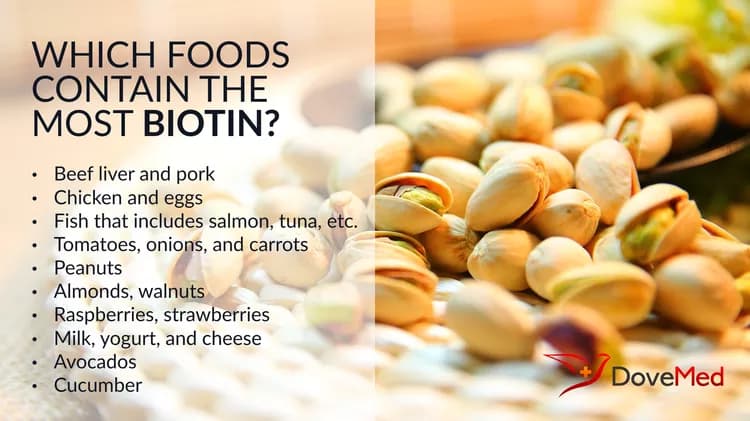The vitamin B-complex constitutes a set of 8 water-soluble vitamins that are essential to the human body for various metabolic functions, specifically cell metabolism. Each member of the vitamin B complex is denoted by a unique number and name. Biotin is known as vitamin B7 (earlier term ‘vitamin H’) and is an important component in the metabolism of carbohydrates, fat, and amino acids. It is also essential for certain neurological, cardiovascular, and gastrointestinal functions.
This nutrient offers a variety of health benefits such as helping maintain the blood-sugar balance, since biotin forms a vital part of insulin production. Scientific research has also established the role of biotin in maintaining healthy hair, nail, and skin. But, it has to be understood that topical applications containing biotin, such as skin creams and hair oils, have no appreciable contribution towards a lustrous skin and shiny hair; for being fully beneficial, the vitamin has to be consumed/ingested.
Biotin deficiencies in the body are uncommon; however, certain groups of individuals are more at risk for a deficient status than others, such as chronic alcoholics and smokers, pregnant women and lactating mothers, and babies born with a rare genetic condition known as biotinidase deficiency disorder that severely affects the skin and nervous system and may lead to death. It is reported that individuals who consume a lot of processed foods may also have B vitamin deficiencies including biotin deficiency.
Studies have established that high levels of biotin in the body are not known to result in any significantly toxic conditions; although, elevated biotin levels in the body can interfere with certain diagnostic lab tests, and consequently lead to wrong diagnoses and/or treatment plans. Vitamin B7 supplements causing excess biotin buildup in the body are also known to adversely interact with some prescription medications such as anticonvulsants.
There is a wide range of foods that are sufficient natural sources of biotin/vitamin B7. Conventional cooking is not known to greatly affect biotin, although soaking in water/syrup for long periods, such as during canning process, may cause depletion of this water-soluble vitamin.
Following is a list of foods that are high in vitamin B7 or biotin:
- Beef liver and pork
- Chicken and eggs (especially egg yolk)
- Fish that includes salmon, tuna, etc.
- Tomatoes, onions, and carrots
- Peanuts
- Almonds, walnuts
- Whole grain bread
- Certain types of mushrooms
- Raspberries, strawberries
- Oats
- Milk, yogurt, and cheese
- Leafy green vegetables including cauliflower, broccoli, spinach, lettuce
- Avocados
- Fruits such as apples, bananas, watermelon, etc.
- Sunflower seeds
- Sweet potatoes
- Cucumber
- Yeast
The Food and Nutrition Board at the National Academy of Sciences outlines the following recommendations for biotin (vitamin B7) intake. The adequate intake (AI) that may be necessary to meet the body’s nutritional need is as follows:
- Children:
- 6 months and younger - 5 micrograms/day
- Between 7-12 months - 6 micrograms/day
- 12 months to 3 years - 8 micrograms/day
- From 4 to 8 years - 12 micrograms/day
- From 9 to 13 years - 20 micrograms/day
- Adolescents and adults:
- Between 14-18 years - 25 micrograms/day
- Over 19 years - 30 micrograms/day
- Pregnant women and breastfeeding mothers - 30 and 35 micrograms/day respectively
It is evident from the list of various natural food sources of biotin that incorporating them into one’s daily diet is simple and beneficial. However, it is always recommended to take the advice of a suitable healthcare professional before bringing about any alteration to your regular food habits, such as incorporating more foods high in vitamin B7 and/or prior to taking any multivitamin supplements.
Related Articles
Test Your Knowledge
Asked by users
Related Centers
Related Specialties
Related Physicians
Related Procedures
Related Resources
Join DoveHubs
and connect with fellow professionals


0 Comments
Please log in to post a comment.